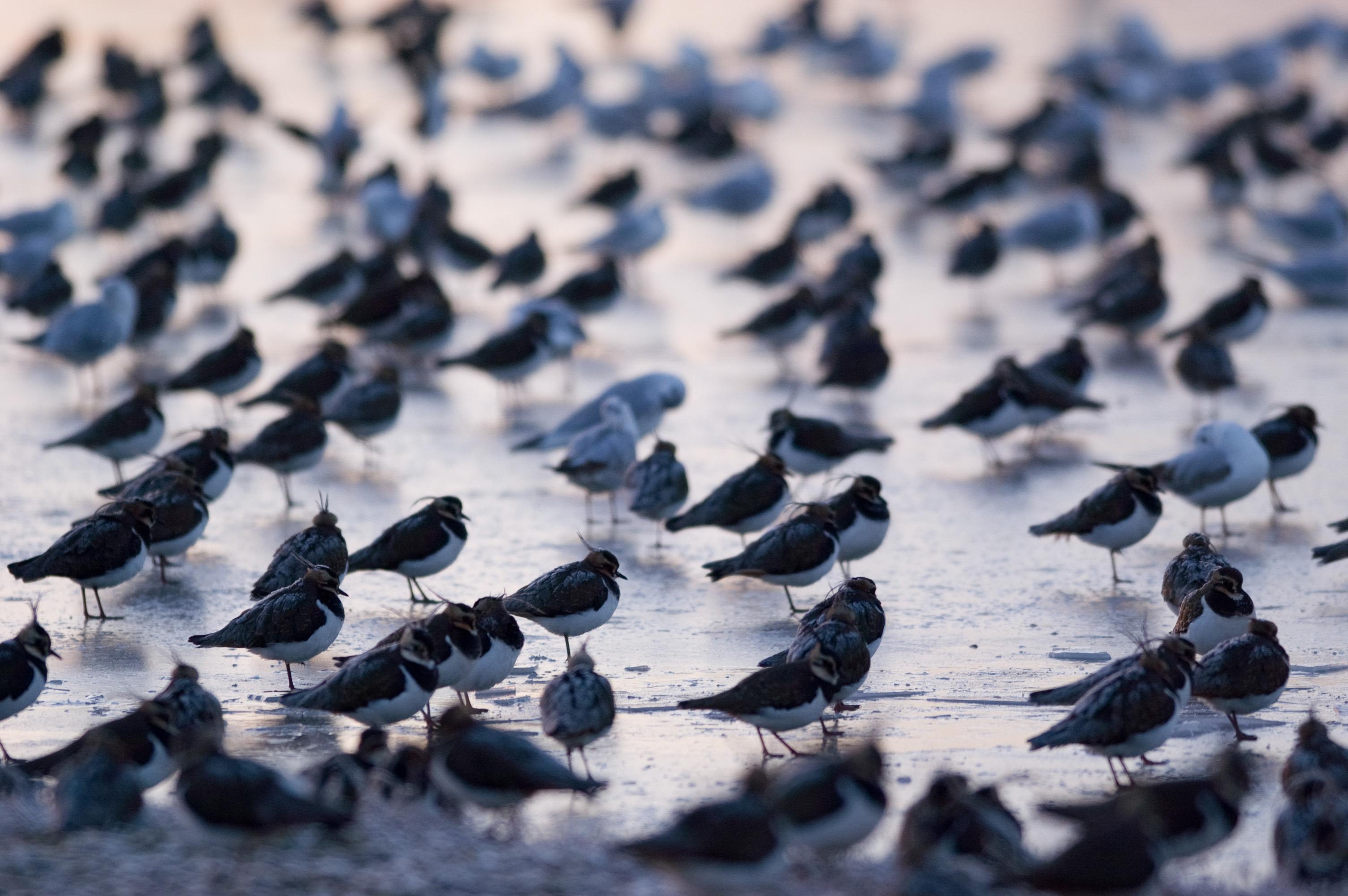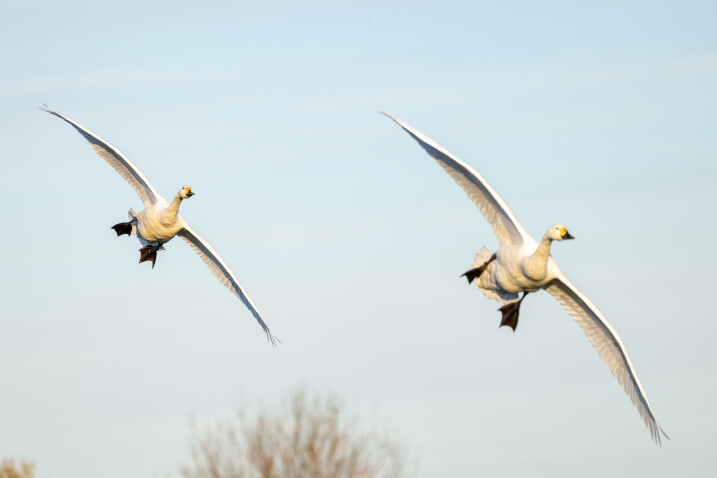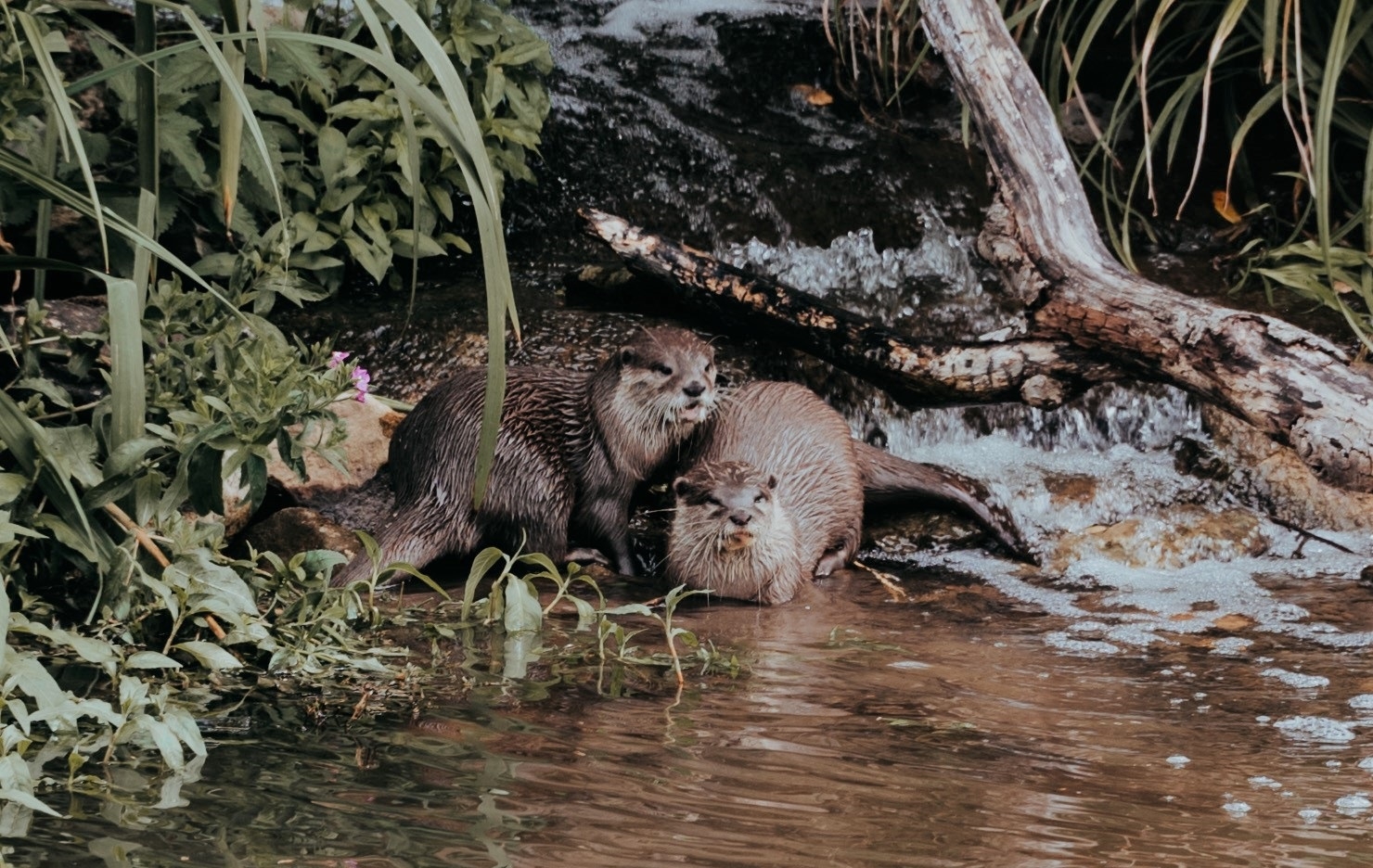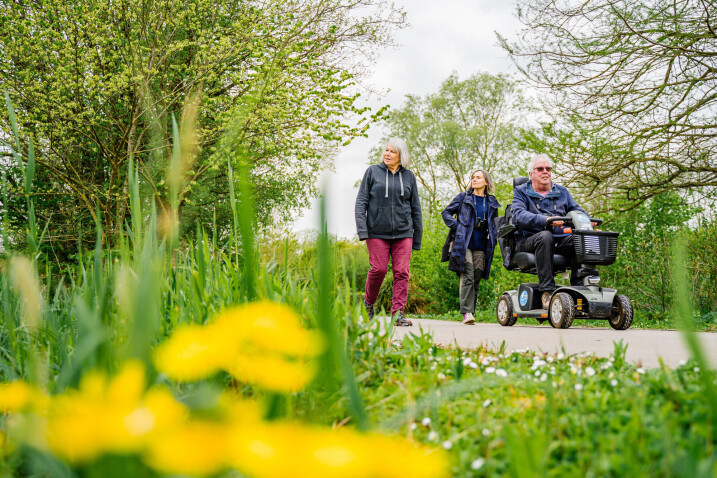Wild cranes return to their motherland
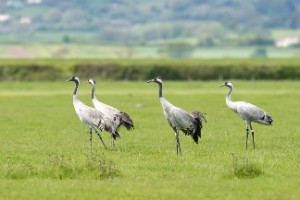
It was a case of the old welcoming the new when adult wild cranes flew back to WWT Slimbridge on Saturday.
The four birds were reared at Slimbridge in 2010 and 2011 before being released into the wild on the Somerset levels as part of the Great Crane Project. The birds flew directly over the Slimbridge Crane School, where they were reared as youngsters.
It is the first time any of the Somerset cranes have returned to Slimbridge.
The cranes spent most of Saturday and Sunday feeding on the Reserve at Slimbridge sleeping each evening on the saltmarsh on the banks of the river Severn .
This is the third year of the Great Crane Project. Each year project staff go out to Germany to collect wild crane eggs which are brought to Slimbridge where they are hatched and the youngsters are reared here ahead of their release three months later in Somerset. This year, for the first time, visitors to Slimbridge can attend a crane talk each day at 2pm from 21 May in the cinema.
Nigel Jarrett, Head of Conservation Breeding, said: “When our staff realised that some of the adult cranes had returned they were overcome with joy. It was like favourite old friends turning up unexpectedly!
“Amy King, who is looking after the baby cranes, did not believe her senses when she first heard, then saw, four cranes flying overhead as she walked the youngsters.
“Time will tell how long they stay here. It is natural for young adult birds to explore, so even though we are 70 miles away from the release site in Somerset, it isn’t a great distance for them to fly.
“ We are delighted that they appear to be finding food easily and a safe place to sleep each evening.”
The birds are Monty, Sedge, Ruby and Beatrice. Three were released in 2010 and one in 2011.
The Great Crane Project is a partnership between WWT, RSPB and Pensthorpe Conservation Trust, with major funding from Viridor Credits Environmental Company. Our aim is to restore healthy populations of wild cranes throughout the UK, so that people can once again experience these beautiful birds.
